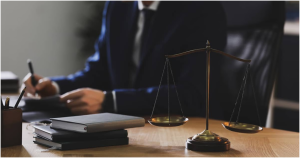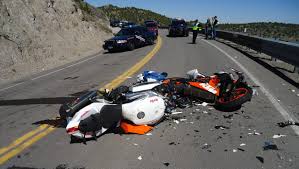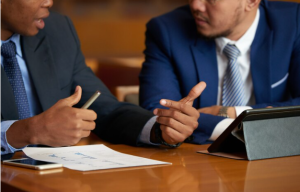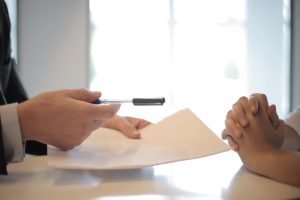Introduction to Car Accidents and Legal Assistance;
Car accidents are among the most common types of accidents on roads and highways. Each year, millions of people are involved in car accidents, resulting in injuries, property damage, and even death. In such situations, it is essential to understand your legal rights and take the necessary steps to protect yourself.
A car accident is defined as any incident involving a motor vehicle that results in damage to property or injury to individuals. This can include collisions between two or more vehicles, collisions with pedestrians or objects on the road, or single-vehicle accidents where the driver loses control and crashes.
Common Causes of Car Accidents;
Many factors can lead to car accidents, some of which include:
- Distracted driving includes activities such as using a cell phone while driving, eating or drinking behind the wheel, and adjusting music or GPS systems.
- Speeding: Driving at high speeds increases the risk of losing control and reduces reaction time in case of unexpected events.
- Driving under the influence: Operating a vehicle while under the influence of alcohol or drugs impairs judgment and coordination.
- Reckless driving includes actions such as tailgating, weaving through traffic, disregarding traffic signals and signs.
- Adverse weather conditions: Rain, snow, ice, and other adverse weather conditions can make roads slippery and increase the chances of an accident.
Step 1: Stay Calm and Assess the Situation
Being involved in a car accident can be a traumatic experience. In such a stressful situation, it is natural to feel overwhelmed and anxious. However, trying to stay calm as much as possible is essential. This will help you think clearly and ensure your safety and the safety of others around you.
- The first step after any car accident lawyer should be to check yourself and others for any injuries. If someone is seriously injured, call for medical assistance immediately. Even if you do not feel hurt, it is essential to seek medical attention as some injuries may not be apparent immediately.
- If your vehicle is still drivable, move it to the side of the road or out of traffic to avoid causing further accidents. However, if driving your car is impossible due to severe damage or injury, leave it where it is and turn on your hazard lights.
- Whether the accident is minor or significant, it is crucial to report it to the police immediately. The police will create an official report of the incident which will be necessary when filing an insurance claim or seeking legal action.
- While waiting for the police to arrive, take photos of the scene from different angles using your phone or camera. These photographs can serve as evidence when dealing with insurance companies or lawyers.
Step 2: Call Emergency Services and Seek Medical Attention
After ensuring your safety and those of others involved in the car accident, the next important step is to call emergency services and seek medical attention. This step is crucial as it ensures that you receive timely medical treatment and helps document the accident for insurance purposes. This section will discuss in detail what actions you should take when calling emergency services and seeking medical attention after a car accident.
1. Call 911 or the Local Emergency Number:
The first thing you should do after a car accident is to call 911 or the local emergency number. Even if there are no severe injuries, reporting the accident to the authorities is essential. The dispatcher will ask for details about the location of the accident, the number of vehicles involved, and any injuries sustained by individuals involved.
2. Describe Your Location:
When speaking with the dispatcher, give an accurate description of your location. This can include street names, nearby landmarks, or mile markers on highways. Providing clear directions will help responders find you faster.
3. Stay on The Phone Until Help Arrives:
After providing all necessary information to the dispatcher, stay on the phone until help arrives. If there are any changes in your condition or if additional information needs to be conveyed to responders, you can inform them through the dispatch line.
Step 3: Gather Information and Document the Accident Scene
After ensuring that you and everyone involved in the accident are safe, the next crucial step is gathering information and documenting the accident scene. This will help you with your insurance claim and serve as evidence if any legal action needs to be taken.
- First, you should exchange information with the other drivers involved in the accident. This includes their name, contact number, address, driver’s license number, vehicle registration number, and insurance details. Make sure to verify all the information provided by photographing their driver’s license and insurance card.
- Take photos or videos of the accident scene from different angles. This will provide a clear visual representation of how the accident occurred and can help determine who was at fault. It is also important to note any road or weather conditions that may have contributed to the accident.
- If any witnesses were present during the accident, it is also essential to gather their contact information. Their testimony can be valuable in determining what happened during the accident and support your version of events if needed for legal proceedings.
- Make sure to document all visible injuries sustained from the accident by taking photos or seeking medical attention immediately after leaving the scene. Keep track of all medical expenses related to your injuries and any damage to your vehicle.
Step 4: Contact Your Insurance Company and Notify Them of the Accident
After taking care of your safety, contacting the police, and collecting evidence at the accident scene, getting your insurance company as soon as possible is crucial. Notifying your insurance company should be one of your top priorities following a car accident.
Why is it important to contact your insurance company?
First and foremost, contacting your insurance company allows them to start processing your claim right away. The sooner you notify them, the faster they can begin investigating and determining liability for the accident. This will also speed up the process of getting compensation for any damages or injuries that occurred.
Additionally, most insurance companies have specific time limits for reporting accidents. If you report an accident quickly, you may avoid denying or delaying your claim. It’s essential to review your policy carefully and understand these time limits.
How do I notify my insurance company?
The first step in notifying your insurance company is to gather all relevant information from the accident scene. This includes names and contact information for all parties involved, witness statements (if any), photos or videos of the damage and surrounding area, police reports (if available), and any other documentation related to the accident.
Next, call or go online to report the accident to your insurance provider. Be prepared to provide them with all relevant information gathered from the scene. They may also ask for additional details about what happened during or after the accident.
Step 5: Consult with a Car Accident Lawyer for Legal Guidance and Representation
After a car accident, one of the most important steps is to consult a car accident lawyer. Even if you believe the accident was minor and there are no severe injuries or damages, seeking legal guidance and representation is still crucial. A car accident lawyer will be able to provide you with valuable insights and help protect your rights in case of any potential legal issues that may arise from the accident.
Here are some key reasons why consulting with a car accident lawyer after experiencing an auto collision is essential:
1. Understand Your Rights
Knowing your rights after being involved in a car accident is essential. An experienced car accident lawyer can explain your legal rights and help you understand what compensation you may be entitled to receive. This includes reimbursement for medical expenses, lost wages, property damage, pain and suffering, and more.
2. Deal with Insurance Companies on Your Behalf
Insurance companies often try to settle claims quickly and for as little compensation as possible. They may also use tactics such as delaying payments or denying valid claims altogether. A skilled car accident lawyer has experience dealing with insurance companies and will protect your best interests throughout the process.
3. Build a Strong Case
A successful personal injury case requires substantial evidence to prove negligence or fault on the part of the other driver involved in the accident. A car accident lawyer can gather evidence such as police reports, witness statements, medical records
Conclusion: Why it’s Important to Take These Steps After a Car Accident
Car accidents can be traumatic and overwhelming experiences. Still, it is crucial to remember that taking the right steps immediately after the accident can significantly impact your physical, emotional, and financial well-being. As a car accident lawyer, I have seen firsthand the consequences of not following these essential steps. In this final section of our blog post, I will highlight why taking these steps after a car accident is essential.
The first and most crucial reason for taking these steps after a car accident is to ensure your safety and well-being. It is common for individuals involved in an accident to experience shock or adrenaline rush, which may mask any underlying injuries. Therefore, it is vital to seek medical attention immediately even if you feel fine. This will help identify any potential damages that may require prompt treatment.
Additionally, following proper safety protocols, such as moving out of harm’s way and turning on hazard lights, can prevent further accidents. The earlier you take action after an accident, the better your chance of preventing other harm or injury.
Taking photos of the accident scene before anything gets moved or cleared away can serve as valuable evidence in case there are disputes over fault or damages later on. It is also essential to gather information from all parties involved in the accident, including their contact information, insurance details, and witness statements.





